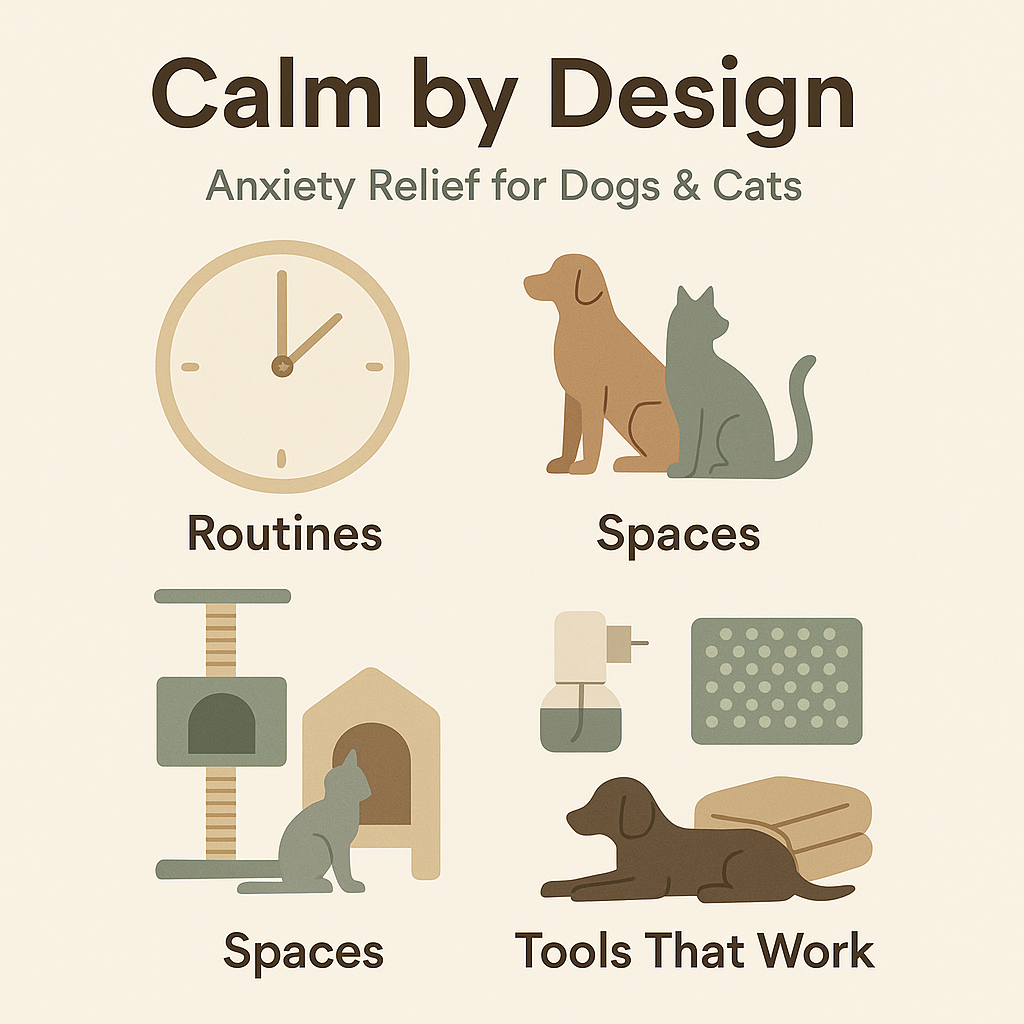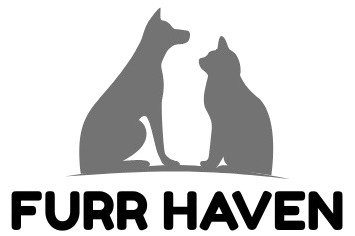
Calm by Design: Anxiety Relief for Dogs & Cats with Routines, Spaces, and Tools that Work
Share
Anxiety is energy without an assignment. Give the nervous system a job—predictable rituals, a shaped environment, and tools with proof—and calm arrives without theater. This is a complete protocol for separation worry, storm phobia, and “new place” jitters.
1) The Daily Scaffold (Predictability First)
-
Walk–work–rest cadence (dogs): 10–15 min sniff-led walk → 5–8 min basic cues (sit, down, place) → 30–60 min calm chew or nap. Do this twice daily; training is a sedative that writes in manners.
-
Play–feed–perch cadence (cats): 10–15 min prey-sequence play → split meal (small portion) → warm window perch. Do this morning and evening to convert arousal into hunger and then sleep.
2) Safe Zones & Soundscapes
-
Den spaces: covered crate or hooded bed lined with familiar fabric; for cats, add a high perch with a wall view.
-
Sound: steady brown/pink noise masks thunder pops; place the speaker near the entry to “guard” the door.
-
Scent: herbal diffusers made for animals can help; keep room fragrances minimal so their nose remains counsel, not confusion.
3) Separation Training (Dogs)
-
Place & settle: teach a mat/place cue; reward calm, not drama.
-
Micro-departures: 10–60 seconds of out-of-sight with a stuffed chew; return before distress crests. Add time slowly; never ladder up after a hard day.
-
Camera check-ins: verify reality; adjust durations based on actual calm, not hope.
4) Storms & Fireworks
-
Before, not during: dress a compression wrap 30 min before the event; start noise masking early.
-
Distraction menu: long-lasting chews, snuffle mat searches, or puzzle feeders.
-
Curtains & dens: close blinds; give a den with weight and walls. For cats, pick the interior room with the least window rattle.
5) Enrichment That Lowers Restlessness
-
Chew rotation (dogs): rubber stuffables, textured chews; rotate 3–4 types weekly to preserve novelty.
-
Hunt cues (cats): door-frame teasers, floor lures, and paper bag tunnels; change height domains across days.
6) When to Call the Vet
-
Panic panting, destructive escape attempts, self-injury, sudden house soiling, or refusal to eat for >24 hours. Behavior meds and supplements exist; training and environment still matter.
Furr Havens Curations
-
Haven Hooded Bed — low-light refuge with washable cover.
-
SteadyWrap Compression Vest — adjustable panels for even pressure.
-
QuietCurrent Sound Machine — brown/pink noise profiles.
-
Forage & Focus Puzzle Set — difficulty-adjustable feeders for dogs & cats.
-
Aurora Window Perch (Heated) — thermostat-limited comfort for post-play naps.
Calm is not an accident. It is a schedule wearing a soft coat.
